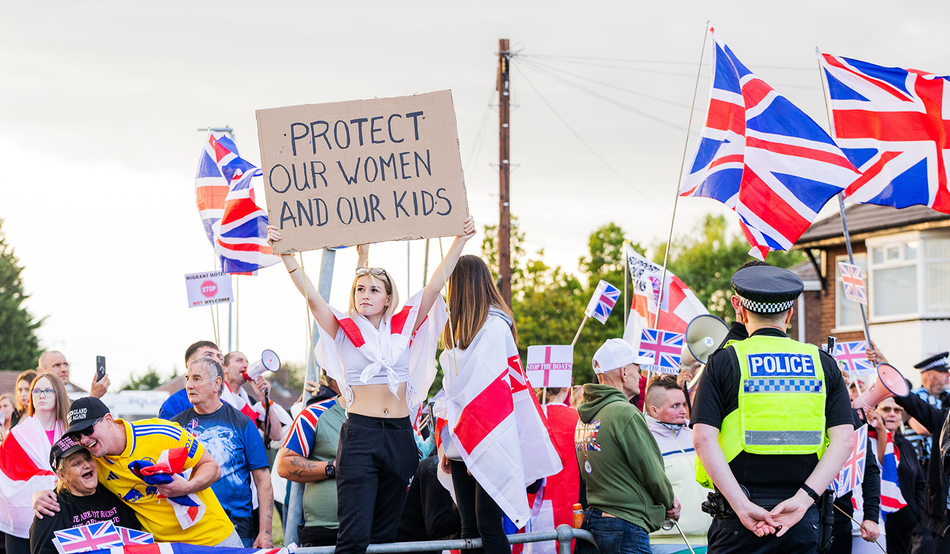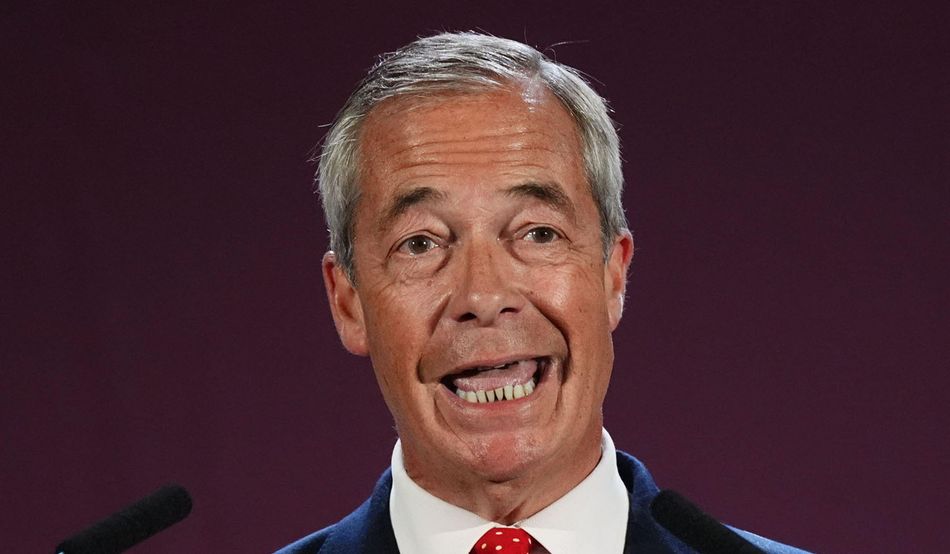In groups patrolling Belfast, purportedly for the protection of children, you’ll find a man convicted of the attempted murder of a child. Among the flag-raisers of Manchester is a man who, in 2016, was found smuggling people into the UK, and was later convicted of being part of a “five-person illegal immigration operation”, according to the Manchester Mill. More recently, the same man was also videoed appearing to slap a woman in the face. It’d be hilariously ironic if they weren’t making such a lot of noise and getting such a lot of attention for it. If it wasn’t so frightening.
I’d rather not give any more time to these men—because their cause is fed by attention—but we equally can’t ignore the bigger picture of which they are a part. The leaders of far-right parties, movements and politics in the United Kingdom, United States and elsewhere promise to protect community and safeguard the interests of women and children. They do this while actively attacking all of those things, often more literally than you’d think.
The supposedly benign concerns such leaders have encouraged among the British public, about rates of immigration and what that means for people’s jobs have—shock, horror—morphed into an inquisition into who is and is not British (read: white British) enough. They are no longer just picking away at the threads of our social fabric, they’ve brought out the shears, and they won’t stop until they’ve shredded it. All the while, so many in the political centre have tip-toed around, badging the fearmongering and divisive politics of these figures as being grounded in the “legitimate concerns” of ordinary voters. Perhaps we think we can just sort this all out like sensible people. But that’s not going to happen unless our leaders change tack.
In this country, a tiny number of people—some politicians, some criminals—have directly and indirectly encouraged a small percentage of the British public to express open hatred for their non-white neighbours, and to persuade others to do the same. The folk who are calling for union flags and St George’s crosses to be raised across the country, and who are protesting outside hotels housing asylum seekers, are anointing themselves as the protectors of women and of Britishness. They remain, however, a minority. They do not accurately represent the whole of Britain or British people—and a number of them are abusers of women, too. Some 40 per cent of the people arrested in last year’s anti-immigration riots had previously been reported to police for domestic violence.
In recent years there has been a lot of discussion about why the voting preferences of men and women appear to be diverging, why more young men support parties of the hard-right and more young women are moving to the left. My hunch is that it’s often not all that complicated. I’m far from the first person to note that racism and misogyny often go together—and when faced with a mobilising hard-right, which is actively radicalising people across this country, it’s no wonder that many women not only reject its political manifestations because of the racism within it, but that they also see the connection to gender-based violence they and their friends experience. The question is—can they make politicians notice, and respond?
Donald Trump, who is visiting the UK at the invitation of the prime minister and the king next week, described himself as a “protector” of women, like many of the flag-raisers and despite a judge having found him to liable for sexual abuse. Trump actively endorses the retraction of women’s rights. And now, re-elected, he has not only legitimised a transatlantic culture in which racism, Islamophobia and misogyny are essentially permitted, but has turned America into a country where people can be kidnapped off the street, detained without legal process, and deported. His visit will be celebrated by those who would do the same here.
What message does it send, to xenophobes and to the people who are subjected to their hatred and violence, to offer this man such a welcome? When the offer was made, the government probably hoped it would benefit Britain—but if this is realpolitik, it may still have damaging consequences. The hard-right’s hatred, while not shared across a population, seeps across society when it is enabled from the top. I doubt Starmer thinks that’s good for Britain, let alone for his party. But he hasn't done nearly enough to fight it.













